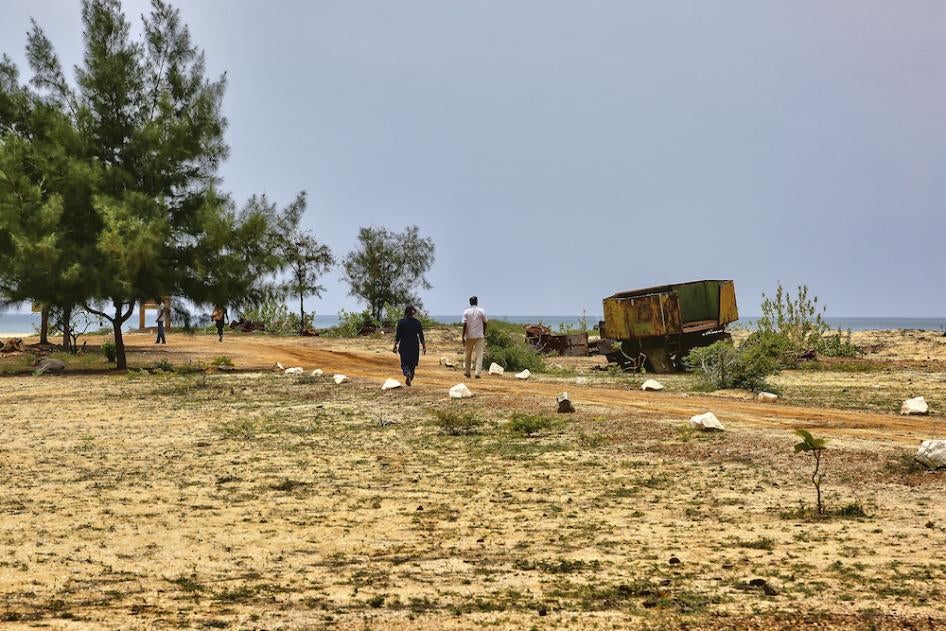UN Pursues Accountability in Response to Government Inaction
by Meenakshi Ganguly, South Asia Director, Human Rights Watch, New York, May 16, 2023

The beach at Mullivaikkal in northeastern Sri Lanka, where many Tamil civilians were killed during fighting between the Sri Lankan army and the Liberation Tigers of Tamil Eelam at the end of the civil war in May 2009, February 16, 2022. © 2022 Creative Touch Imaging Ltd./NurPhoto via AP Images
On May 18, Tamils in Sri Lanka will mark Mullivaikkal Memorial Day, in remembrance of those who died in the final stages of the country’s brutal civil war that ended in 2009. Thousands of Tamil civilians were killed when the Sri Lankan army bombarded self-declared “no fire zones” in fighting against the Liberation Tigers of Tamil Eelam (LTTE). After the LTTE’s defeat, government security forces extrajudicially executed or forcibly disappeared numerous captured LTTE fighters and suspected civilian supporters.
Fourteen years later, the Sri Lankan government remains in denial about the atrocities committed by its forces. The Mothers of the Disappeared, a group that has persistently sought to learn the fate of their loved ones, face harassment from security agencies, while the government provides neither information nor justice.
The government Office on Missing Persons , set up to trace the disappeared, has made no progress. An April United Nations report criticized the agency’s appointment of “individuals implicated in past human rights violations” and the office’s “interference in the prosecution of such cases.”
During the conflict, both sides committed countless rights abuses, including torture, extrajudicial killings, attacks on civilians, and using child soldiers. Various UN bodies, Human Rights Watch, and other human rights organizations have long criticized successive Sri Lankan administrations for failing to seriously investigate and appropriately prosecute those responsible for grave rights abuses and war crimes during and since the 26-year civil war.
Some government officials implicated in alleged crimes remain politically powerful or hold senior positions in the Sri Lankan military. The authorities continue to seize or hold land belonging to Tamils or owned by Hindu temples.
The government’s unwillingness to prosecute civil war-era crimes has forced victims and their families to seek justice elsewhere. The UN established an accountability project to gather evidence for use in future prosecutions after the government withdrew from an earlier agreement that envisaged a “hybrid” process of Sri Lankan and foreign judicial officers.
President Ranil Wickremesinghe has proposed forming a “Truth and Reconciliation Commission,” but the recommendations of all previous domestic commissions have been ignored. This would be a way to sideline justice efforts rather than promote them.
The Sri Lankan government should stop stalling and fulfill its obligation to investigate and prosecute the grave violations for which many people still suffer. Until it does, countries should work with the UN accountability project to vigorously pursue justice abroad.